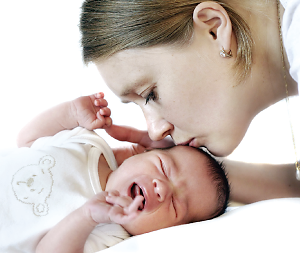New Data Provide Guidance on Lithium Use in Pregnancy
Abstract
It’s been said that the best predictor of the future is the past, and that’s no more often true than for women with a history of bipolar disorder or postpartum psychosis, who are at extremely high risk of relapse postpartum.
Guiding these women through pregnancy and the postpartum period can be a major challenge for mental health practitioners and obstetricians, one in which the goal is relapse prevention rather than treatment once symptoms appear.

Women with a history of psychosis limited to the postpartum period tend to remain stable throughout pregnancy, even when medication free.
Previous studies in high-risk women provide strong support for the benefits of lithium prophylaxis for relapse prevention during pregnancy and the postpartum period, but those benefits must be carefully weighed against risks for the fetus, neonatal complications following delivery, and breastfeeding. Until now, the question of when to initiate lithium prophylaxis—during pregnancy or immediately postpartum—has been unclear. But researchers at the Erasmus Medical Center in Rotterdam, the Netherlands, have sought to provide clarification with the publication of their study online March 8 in AJP in Advance.
Between 2003 and 2010, 70 pregnant women at high risk for postpartum psychosis based on their history were referred to the authors’ psychiatric outpatient clinic, the Peripartum Prevention Program of the Erasmus Medical Center. The pregnant women made their own decisions regarding whether to take medication during pregnancy and the postpartum period. They were given information and recommendations regarding specific drugs and treatment options. Women already taking maintenance lithium during pregnancy were advised to continue treatment, and women who were initially medication free were advised to start lithium prophylaxis immediately postpartum. The women were advised against breastfeeding given the current uncertainly regarding breastfeeding during lithium treatment.
All women with a history of psychosis limited to the postpartum period (n=29) remained stable throughout pregnancy despite being medication free. Of the women with bipolar disorder (n=41), 24.4 percent relapsed during pregnancy, despite prophylaxis lithium use by the majority throughout pregnancy. The postpartum relapse rate was highest in women with bipolar disorder who experienced mood episodes during pregnancy (60.0 percent).
In contrast, none of the 20 women who had a history of postpartum psychosis only and used postpartum prophylaxis relapsed, compared with 44.4 percent of patients who had postpartum psychosis only and declined prophylaxis.
Based on these findings, the authors recommended initiating prophylactic treatment immediately postpartum in women with a history of psychosis limited to the postpartum period, to avoid in-utero fetal exposure to medication, but “patients with bipolar disorder require continuous prophylaxis throughout pregnancy and the postpartum period to reduce peripartum relapse risk,” they said.
“Up to now, physicians haven’t known when to start medication to prevent postpartum psychosis. Many have thought that it has to start before delivery, but that exposes the fetus to possible adverse effects,” said Veerle Bergink, M.D., a psychiatrist at the Erasmus Medical Center and lead author of the study. “Now women who have a history of psychosis limited to the postpartum period may be able to avoid that risk.
“On the other hand, in bipolar women, medication during pregnancy appears critically important, to maintain mood stability during pregnancy and to minimize the high risk of postpartum relapse.”
“This unique study does not establish new guidelines for treatment,” said Robert Freedman, M.D., AJP editor in chief, in a press release announcing the study’s results, “but it gives doctors and patients important data for their decisions on the benefits and risks for preventive treatment during pregnancy,” 
An abstract of “Prevention of Postpartum Psychosis and Mania in Women at High Risk” is posted at http://ajp.psychiatryonline.org/Article.aspx?ArticleID=1130558.



